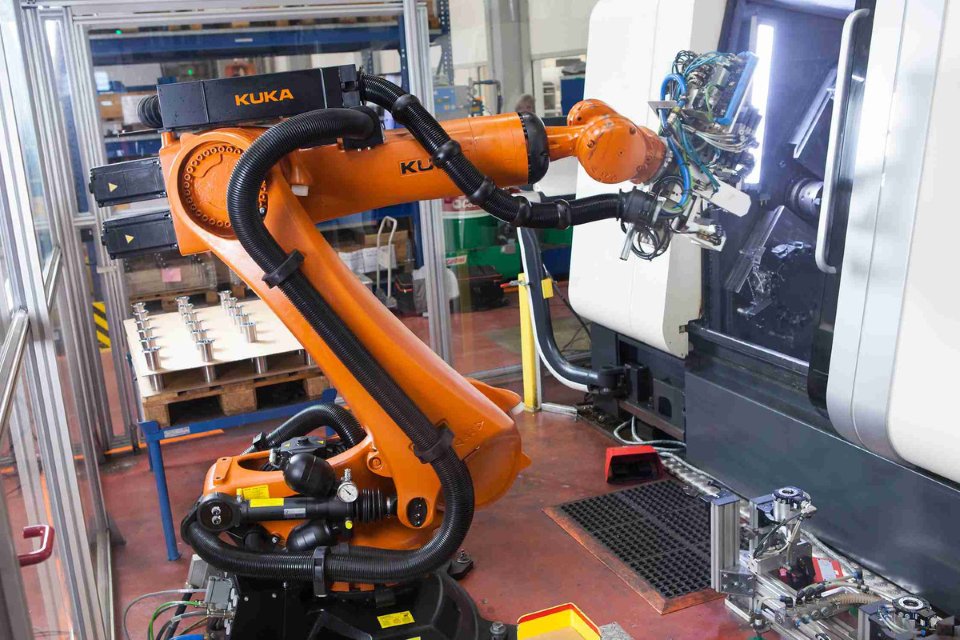What is Industrial Automation at the Intermediate Level?
On December 28, 2018, the Ministry of Labor, Invalids and Social Affairs (MOLISA) issued Circular 48/2018/TT-BLDTBXH regulating the minimum knowledge volume and competency requirements that learners must achieve upon graduation from intermediate and college levels in the fields of electrical engineering, electronics, and telecommunications.

What is Industrial Automation at an Intermediate Level? - Illustrative Image
According to the regulations on the minimum volume of knowledge and competency requirements that learners must achieve upon graduation at the intermediate level and college level in the field of Industrial Automation, issued along with Circular 48/2018/TT-BLDTBXH, Industrial Automation at the intermediate level is a profession involved in designing, manufacturing, and installing automated production lines; applying specialized software to program control, monitor, and manage production systems in order to increase labor productivity, improve product quality, and free humans from hazardous and dangerous environments, meeting level 4 requirements in the Vietnam National Qualifications Framework.
Practitioners of Industrial Automation will participate in research, design work at technology solution providers, consulting and design companies, or work at companies installing production lines; or be directly involved in operating and maintaining automated production lines in factories. Additionally, practitioners may work as sales staff, customer support consultants for companies that provide automation equipment.
To practice the profession, workers must have good health and professional ethics, enough specialized knowledge and professional skills to meet job positions. They must be able to perform and solve tasks proactively, communicate and coordinate work in teams, organize and manage the production process, and mentor lower-level workers.
Minimum volume of knowledge: 1,580 hours (equivalent to 56 credits).
Upon graduation, learners have the competency to meet the requirements of job positions in the industry, including:
- Installation of equipment and automated systems;- Operation and monitoring of automated systems;- Maintenance and repair of equipment and automated systems;- Technical consulting and sales of automated equipment;- Installation and operation of industrial robots.
Additionally, the minimum volume of knowledge and competency requirements that learners must achieve after graduation can continue to be developed at higher levels. Graduates have the ability for self-study and to update technological advances within the field to improve their levels or take bridging programs to higher levels in the same profession, group of professions, or training field.
Details of the document can be found at Circular 48/2018/TT-BLDTBXH, effective from February 10, 2019.
Le Vy
- Responsibilities of officials of the Ministry of Finance of Vietnam when they are issued Official Passports from November 19, 2024
- 06 solutions to enhance the effectiveness of social policy credit in the new phase in Vietnam
- Financial support level for the purchase and repair of transportation vehicles for the Economic - National Defense Corps in Vietnam from December 30, 2024
- Financial support levels for purchasing and repairing of medical equipment for the Economic - National Defense Corps in Vietnam from December 30, 2024
- Latest regulations on management and use of passports for officials and public employees of the Ministry of Finance of Vietnam
- New regulations on the procedures for veterinary sanitation inspection in Vietnam from January 6, 2025
-

- Responsibilities of officials of the Ministry ...
- 16:00, 23/11/2024
-

- 06 solutions to enhance the effectiveness of social ...
- 15:32, 23/11/2024
-

- Guidelines for registration and organization of ...
- 11:53, 23/11/2024
-

- Contents of audit service quality control in Vietnam
- 11:00, 23/11/2024
-

- Acts in violation of Law on Independent Audit ...
- 10:30, 23/11/2024
 Article table of contents
Article table of contents
